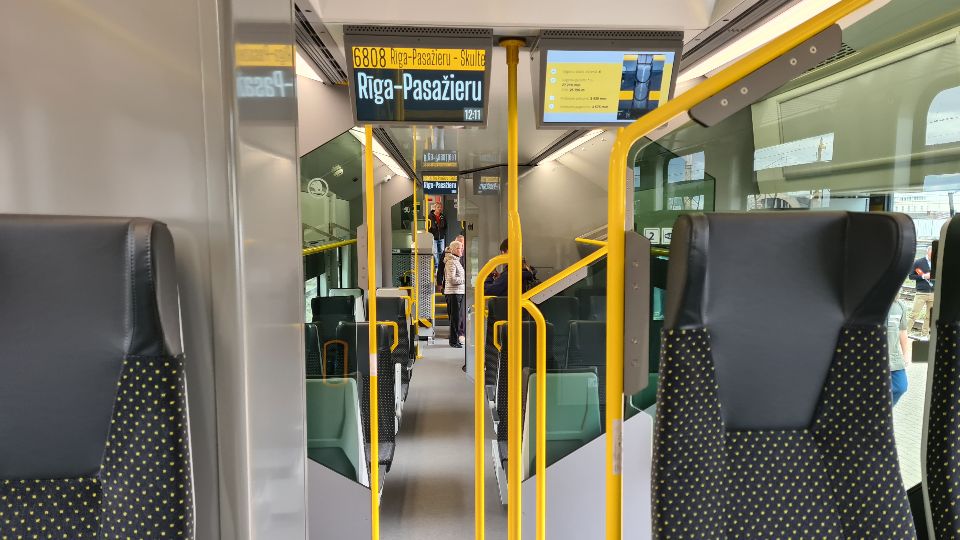The first new electric train reached Riga in June last year, the second in July, the third in October, the fourth in November, the fifth in December, and the sixth in January 2023. The transfer of electric trains from the Czech Republic takes place by road through Poland and Lithuania, and the assembly takes place in Rīga.
Three of the trains are tested on the Rīga-Aizkraukle route. Two of them are tested empty, third is loaded with sandbags simulating the weight of 890 passengers so that the train can be tested with full or maximum load - both the speed and the way the braking system works at different speeds.
Each electric train consists of four cars. The length of one electric train is 109 meters. Each train has seats for 436 passengers and standing areas for 454 passengers.
The speed of the new trains will be up to 160 kilometers per hour, while the current trains have a speed of up to 120 kilometers per hour.
The total cost of the purchase of 23 new electric trains for the passenger rail network is EUR 257.889 million, with co-financing of the European Union Cohesion Fund of EUR 114.211 million.































